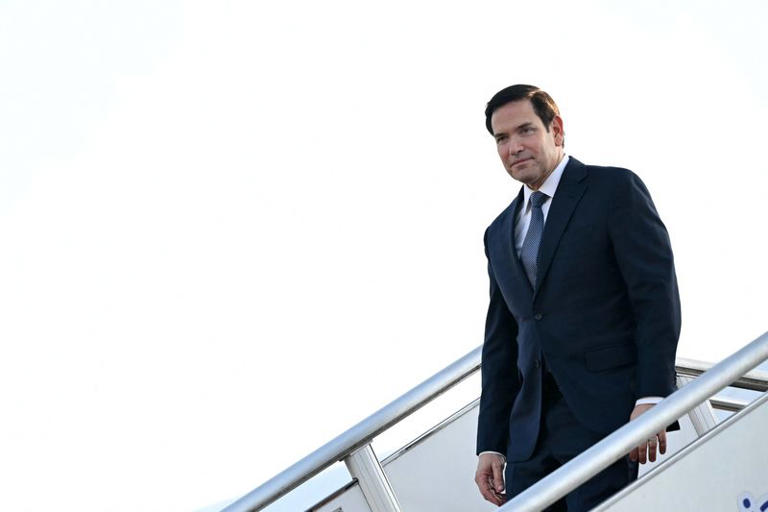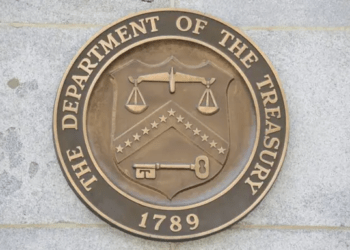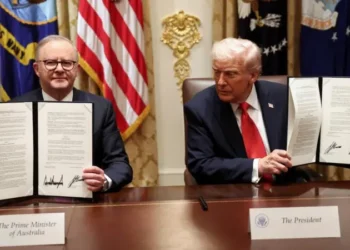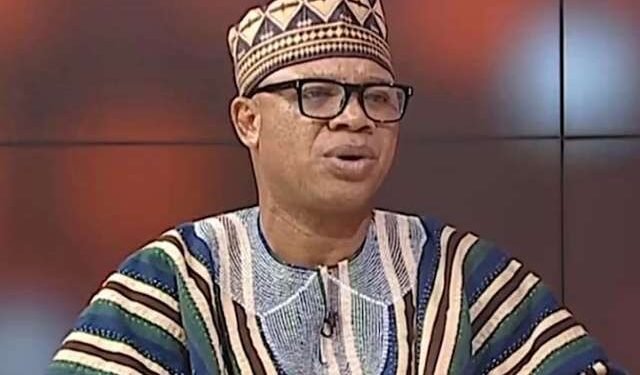US Secretary of State, Marco Rubio has disclosed that he would be traveling to Israel to keep the momentum on the US-brokered ceasefire agreement between Israel and Hamas.
The US State Department announced that Rubio was visiting Israel to support the implementation of Donald Trump’s 20-point plan to end Gaza’s war and pave the way towards reconstruction, stable governance and possible steps towards Palestinian statehood.
This comes as US Vice President, JD Vance’s visit to Israel draws to a close. Rubio becomes the latest senior US official to do so after a flare-up in violence raised fears the truce could collapse. He also follows on the heels of Middle East Envoy Steve Witkoff and the US President’s son-in-law Jared Kushner.
Earlier this week, Vance announced the opening of a civilian military coordination center in southern Israel where some 200 US troops are working alongside the Israeli military and delegations from other countries planning the stabilization and reconstruction of Gaza.
Rubio told journalists at Joint Base Andrews that he plans to visit the center and appoint a Foreign Service official to work alongside the top US military commander in the Middle East, Vice Adm. Brad Cooper.
The US is seeking support from other allies, especially Gulf nations, to create an international stabilization force to be deployed to Gaza and train a Palestinian force.
“We’d like to see Palestinian police forces in Gaza that are not Hamas and that are going to do a good job, but those still have to be trained and equipped.”
Marco Rubio
Israeli media referred to the parade of American officials visiting to ensure Israel holds up its side of the fragile ceasefire as “Bibi-sitting.” The term, utilizing Prime Minister Benjamin Netanyahu’s nickname of Bibi, refers to an old campaign ad when Netanyahu positioned himself as the “Bibi-sitter” whom voters could trust with their kids.
On Wednesday, Vance sought to emphasize that US officials were not flocking to Israel in a bid to babysit the ceasefire in the Gaza Strip, stressing that Israel was a partner, not a “vassal state” as questions grew around the next steps in Trump’s peace plan.
Rubio Criticises Bill On West Bank Annexation

Rubio also criticized efforts by far-right politicians in the Israeli parliament who on Wednesday took the symbolic step of giving preliminary approval to a bill that would give Israel authority to annex the occupied West Bank, a move the US opposes.
He asserted that Trump “has made clear that’s not something we’d be supportive of right now, and we think it’s potentially threatening to the peace deal.”
The bill passed in a 25-24 vote. The vote was the first of four needed to pass the law and coincided with Vance’s visit to Israel, a month after Trump said that he would not allow Israel to annex the territory it took in the 1967 Middle East war. Netanyahu’s Likud party did not support the legislation, which was put forward by lawmakers outside his ruling coalition
“They’re a democracy, they’re going to have their votes. People are gonna take these positions…but at this time, we think it might be counterproductive.”
Marco Rubio
A number of Arab and Islamic states, which the United States is courting to provide troops and money for a stabilisation force in Gaza, have warned that annexation of the occupied West Bank is a red line.
When asked about increased violence by Israeli settlers against Palestinians in the occupied West Bank, Rubio remarked, “We’re concerned about anything that threatens to destabilise what we’ve worked on.”
Despite warning of the impact that the Israeli Knesset’s moves toward annexation could have on peace efforts in the region, Rubio still projected optimism over the future of the current ceasefire deal. “There’s more work to be done and we know that,” he said.






















